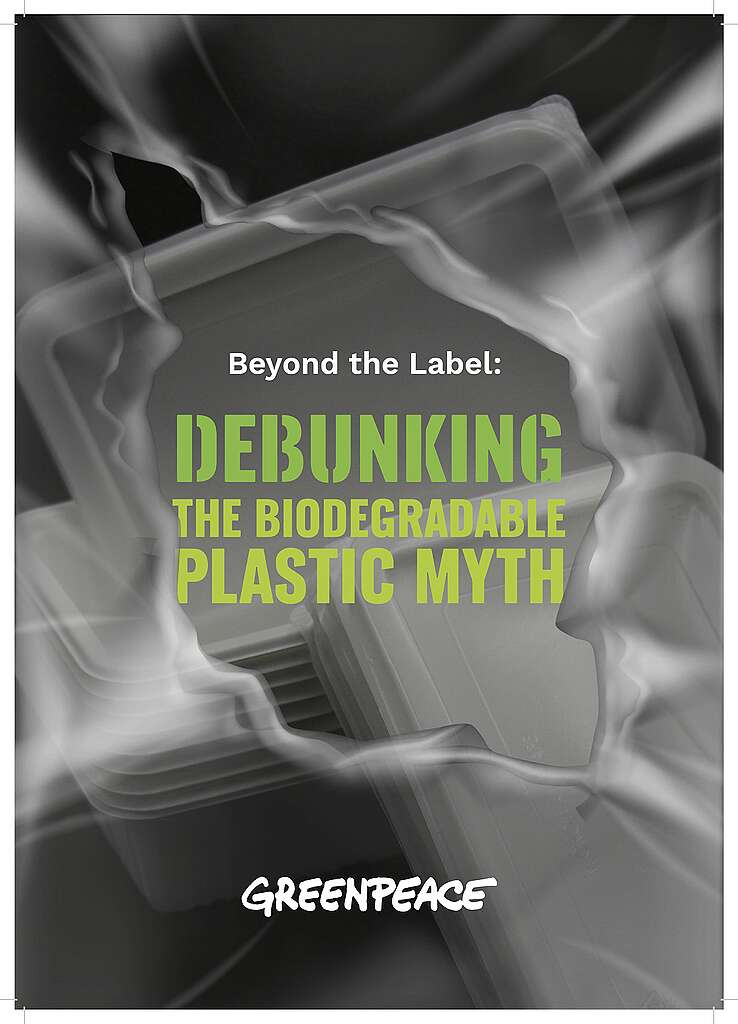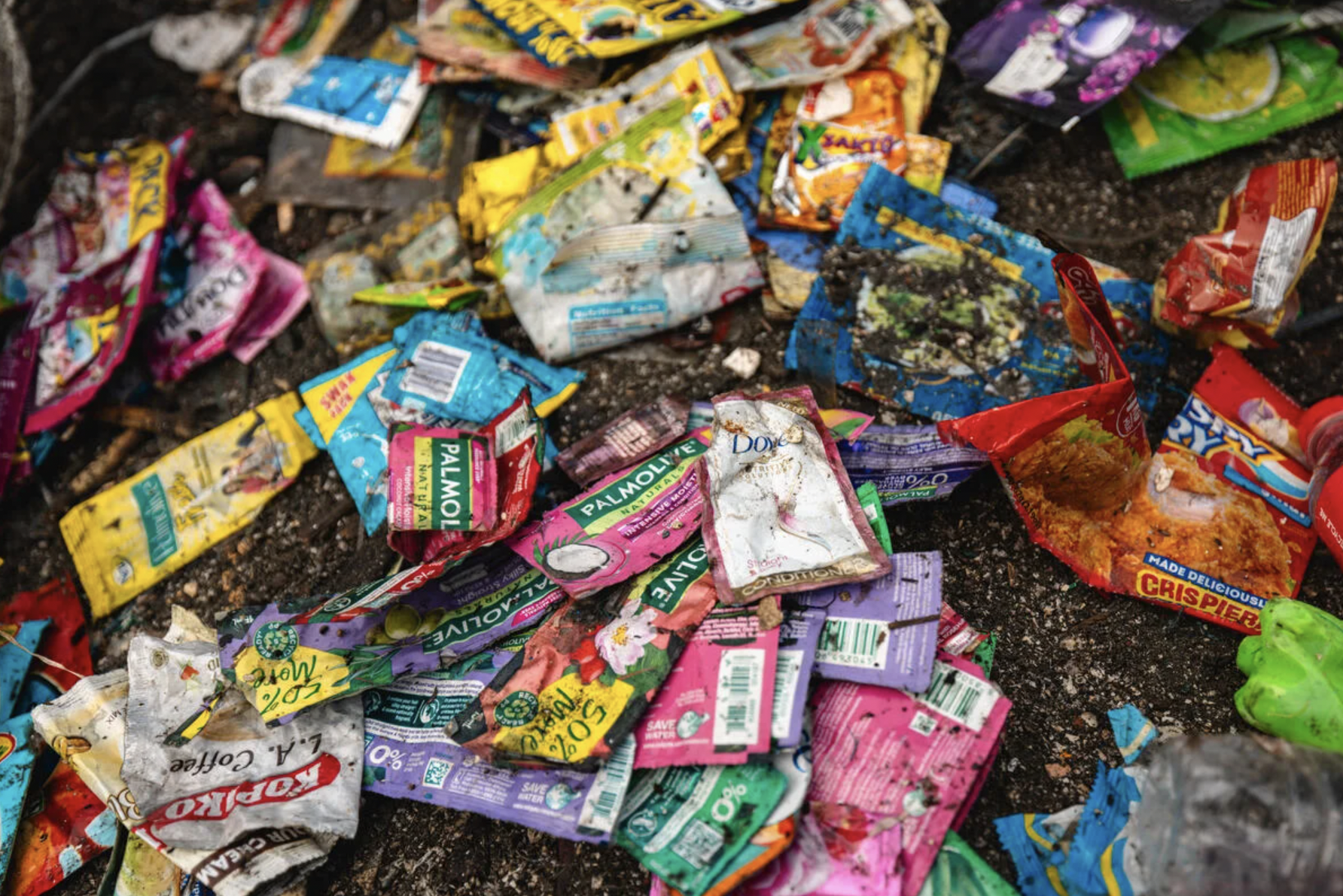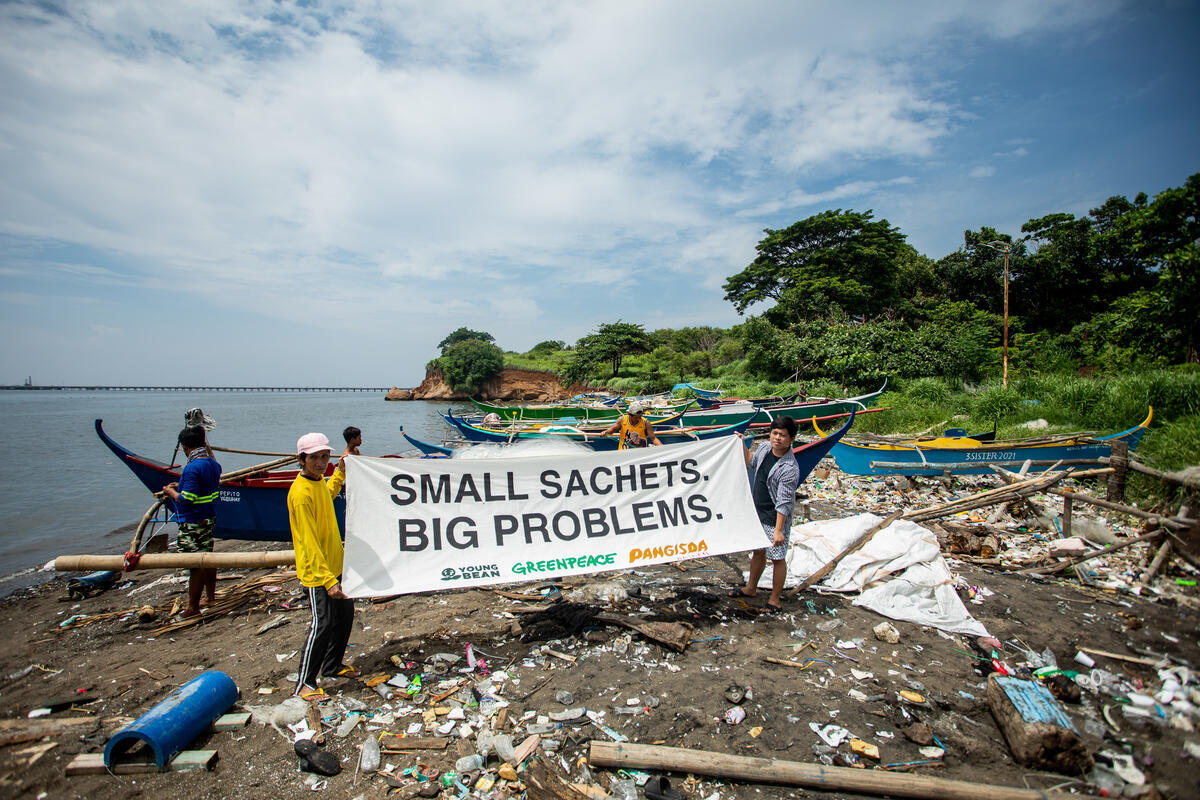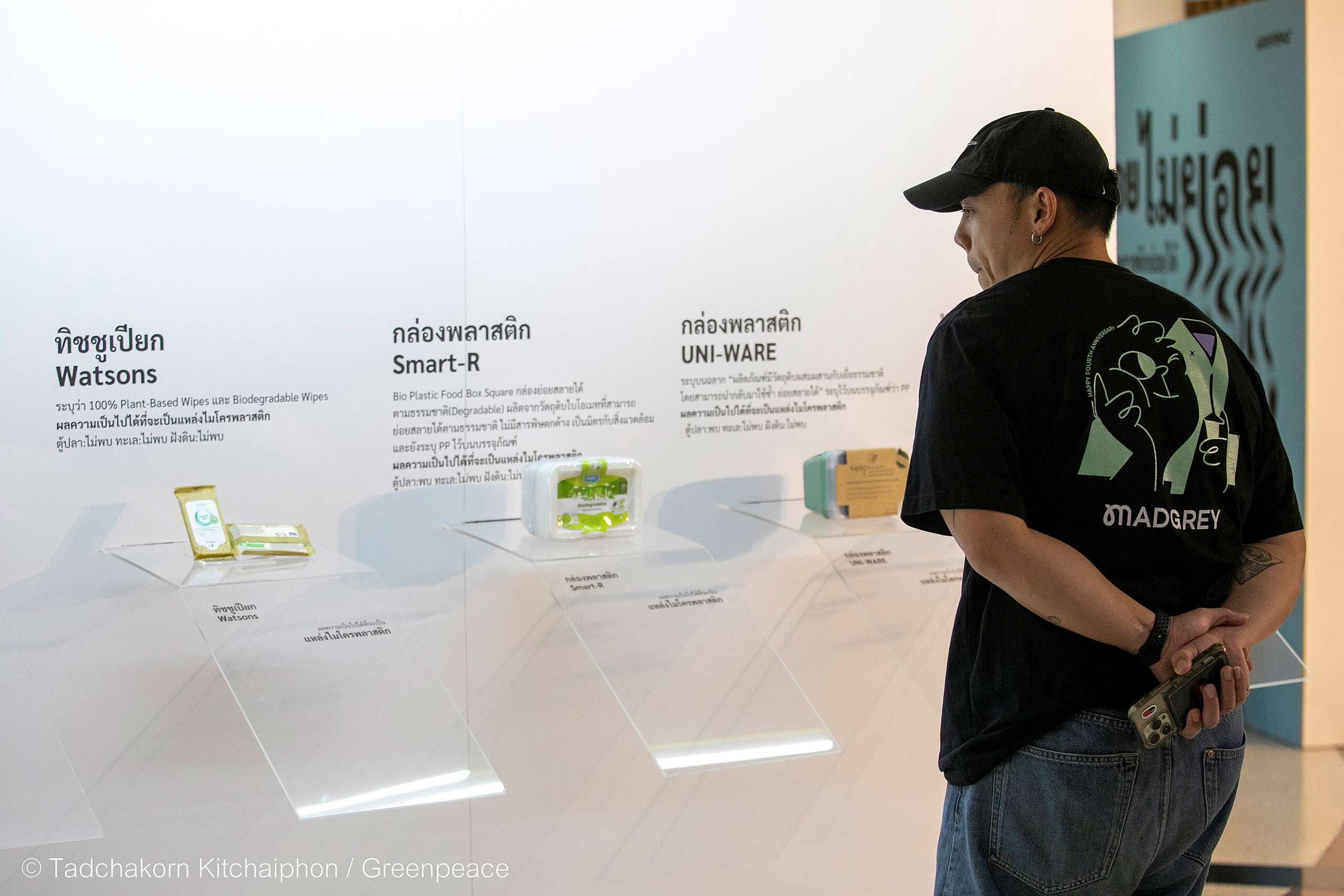
Greenpeace Thailand’s report “Beyond the Label: Debunking the Biodegradable Plastic Myth” critically examines the real-world performance of biodegradable and bio-based plastic packaging widely marketed as eco-friendly.
Conducted in collaboration with the Bachelor of Science in Marine Technology program at Burapha University, the study tested 11 single-use plastic products under three environmental conditions: simulated seawater, actual seawater, and soil. The research aimed to assess the plastic product’s degradation rates and potential to generate microplastics.
Key Findings:
Key Findings from Degradation Test
Submersion in Simulated Seawater Environment
- Not degradable: Inthanin PLA cups, Smart-R handle bags, UNI-WARE plastic box, AdvanceBIO handle bags, Mitr Phol sugar bags, Milo and Amazon plastic straws, and Smart-R Plastic Box. Watsons wet wipes, Lotus’s bagasse plates were torn into fragments.
- Fully degradable: None of the tested plastic products is fully degradable in simulated seawater.
- Partly degradable: All Café paper cups showed slight degradation.
Submerged in Actual Seawater
- Not degradable: Inthanin PLA cups, Smart-R handle bags, AdvanceBIO handle bags, UNI-WARE plastic box, Smart-R plastic box.
- Fully degradable: Milo paper straws, Watsons wet wipes, Lotus’s bagasse plates.
- Partly degradable: All Café paper cups, Mitr Phol sugar bags, Amazon plastic straws.
Buried Under Soil
- Not degradable: Inthanin PLA cups, Smart-R handle bags, AdvanceBIO handle bags, UNI-WARE plastic box, Smart-R plastic box.
- Fully degradable: Milo paper straws, Watsons wet wipes, Lotus’s bagasse plates.
- Partly degradable: All Café paper cups, Mitr Phol sugar bags, Amazon plastic straws.
Key Findings from Microplastics Detection
- Simulated Seawater: Inthanin cups (the color shedding from the packaging), Smart-R handle bags, UNI-WARE plastic box.
- Actual Seawater: All Café paper cups, Mitr Phol sugar bags, Amazon plastic straws.
- Soil: Mitr Phol sugar bags, Amazon plastic straws.
False Solutions
The report debunks the myth that replacing fossil-based plastics with bio-based or biodegradable alternatives is a sustainable solution, exposing misleading marketing and labeling practices. The analysis reveals that many materials labeled as biodegradable, bioplastic, or bio-based plastic fail to break down effectively in natural settings. This misconception fosters a “throwaway culture” under a green disguise. In reality the bio-based or biodegradable plastics represent a false solution.
Real Solutions Proposed
- Deposit Return Scheme & Reuse System: Encouraging the business sector to establish the system to return and reuse packaging to reduce plastic use at the source.
- Refill System: Promoting the business sector to set up the refill system to allow consumers to bring their personal containers to refill at the stores.
- Innovative Investment: Supporting businesses that develop innovative alternatives to replace their reliance on single-use plastics by focusing on redesigning systems and packaging to reduce unnecessary plastics and create a sustainable consumption system.
Policy Recommendations
Governments must urgently establish clear, enforceable standards and hold companies accountable for misleading or false labeling. Manufacturers and retailers must adopt Extended Producer Responsibility (EPR) to phase out problematic, Unnecessary, and Avoidable single-use plastic. Consumers should be cautious of misleading claims and shift toward reuse-driven consumption.
Contact:
Pichmol Rugrod, Plastic-Free Future Project Leader, Greenpeace Thailand
Tel: +66 63 906 4971, Email: [email protected]



